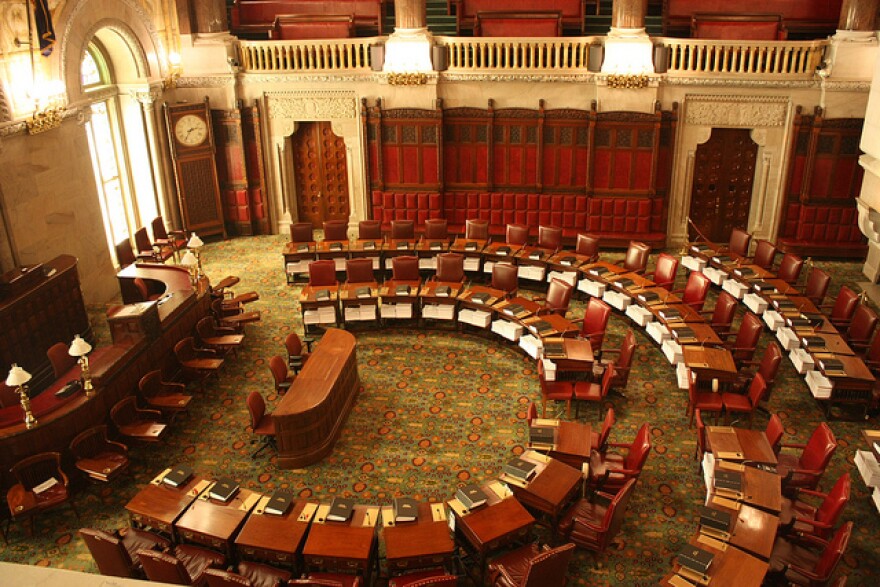Two Democratic factions in the New York State Senate say they are joining to form what could be a strong Democratic majority in the Senate, leaving Republicans, who up until now have ruled the chamber in a coalition government, out of power.
In a joint statement, Gov. Andrew Cuomo and Senate Independent Democratic Conference Leader Jeff Klein say the breakaway Democratic faction that had ruled with the Republicans for the past two years has agreed to join in a coalition government with the rest of the Senate Democrats, giving them a potential majority after the November elections.
Cuomo, in exchange for an endorsement from the left leaning Working Families Party, promised to help reunite the two Democratic factions in order to achieve passage of several progressive issues, including public campaign financing, a women’s equality act with an abortion rights provision, and a measure to give college aid to children of undocumented immigrants, known as the Dream Act.
Karen Scharff, with Citizen Action, which is a aligned with the party, is pleased.
“I’m very excited to hear that we’re going to have a Senate majority now that’s going to work for the needs of ordinary New Yorkers,” Scharff said.
Scharff also credits New York City Mayor Bill de Blasio and many of the state’s major unions, who worked behind the scenes to forge the deal between the two Democratic factions.
Another reason for the agreement, announced just days after the close of the legislative session, is that several of the Independent Democrats, also known as the IDC, have been facing primary threats from Democratic challengers who have said they would join with the rest of the Democrats, if elected.
Even with the Democrats reunited, passage of the progressive items is not a sure thing in the Senate. There currently are not enough votes to achieve the required 32-vote majority for passage of many of the measures. At least two Democrats are likely to oppose an abortion rights bill, and possibly other items as well.
Two other Democrats, John Sampson and Malcolm Smith, have been indicted for criminal offenses and face an uncertain future in the Senate. They are currently not members of any faction. And there are two vacant seats that won’t be filled until the November elections.
Scharff says the next step is to elect more Democrats to the Senate in the fall.
“Nothing is ever guaranteed in politics or in the legislature, but this is a huge step forward,” Scharff said. “Now we need to win some elections to make sure we really have the votes.”
Senate Republicans weighed in, saying Democrats should not be so sure that they will be in control after Election Day. Sen. Dean Skelos, the Republican leader, has said repeatedly that the GOP expects to make gains in the fall contest.
“We’re going to pick up three to four seats this year,” Skelos predicted recently.
In a statement after the announcement, Skelos called the reunification, “nothing more than a short-term political deal designed to make threatened primaries go away."
He predicted that if Democrats do rule, they will return to an era of dysfunction and chaos that marked the last time the Democrats had power, in 2009 and 2010. Democrats say they’re different now.
The reunion of the Democrats will not take place until after Election Day, leaving the Independent Democrats a possible out. They could change their minds and remain with the Republicans, if the rest of the Democrats can’t win enough seats to have a full majority.



